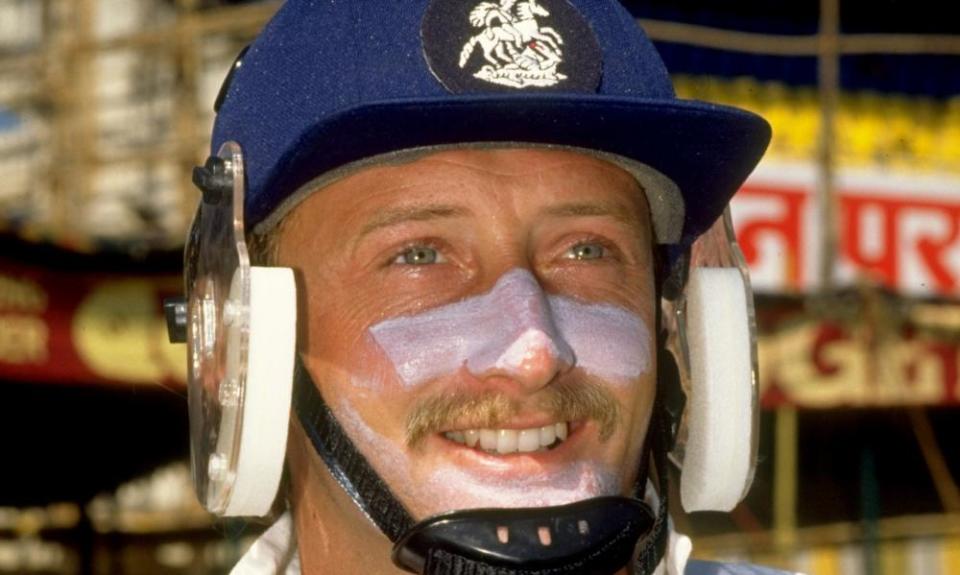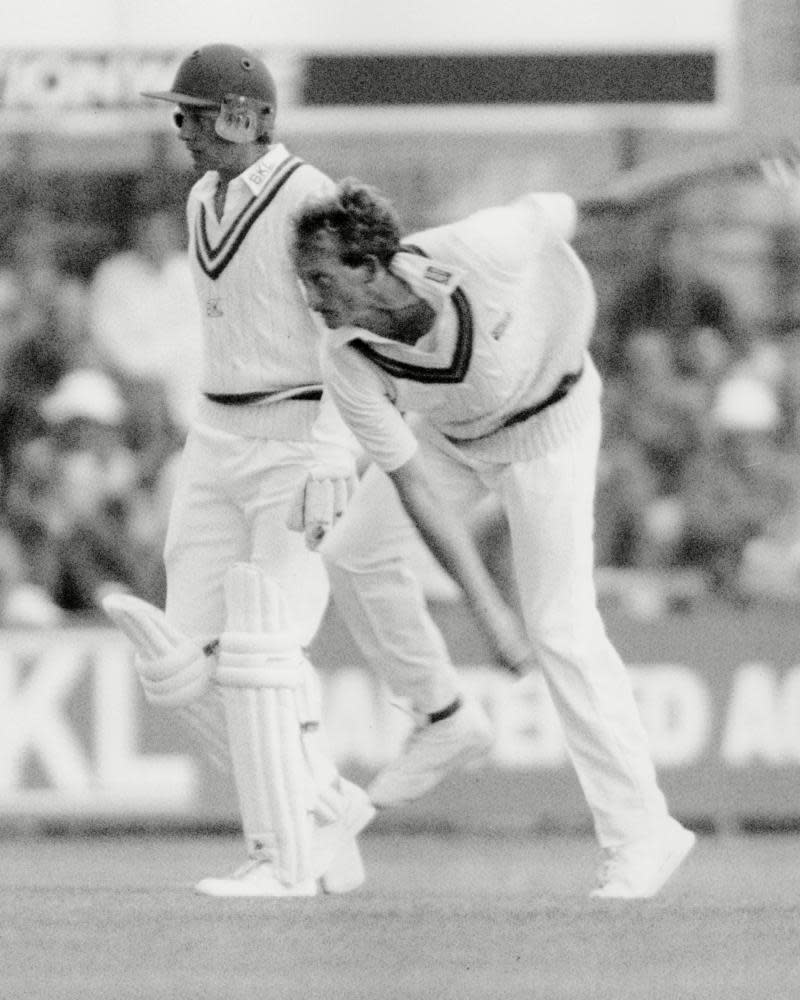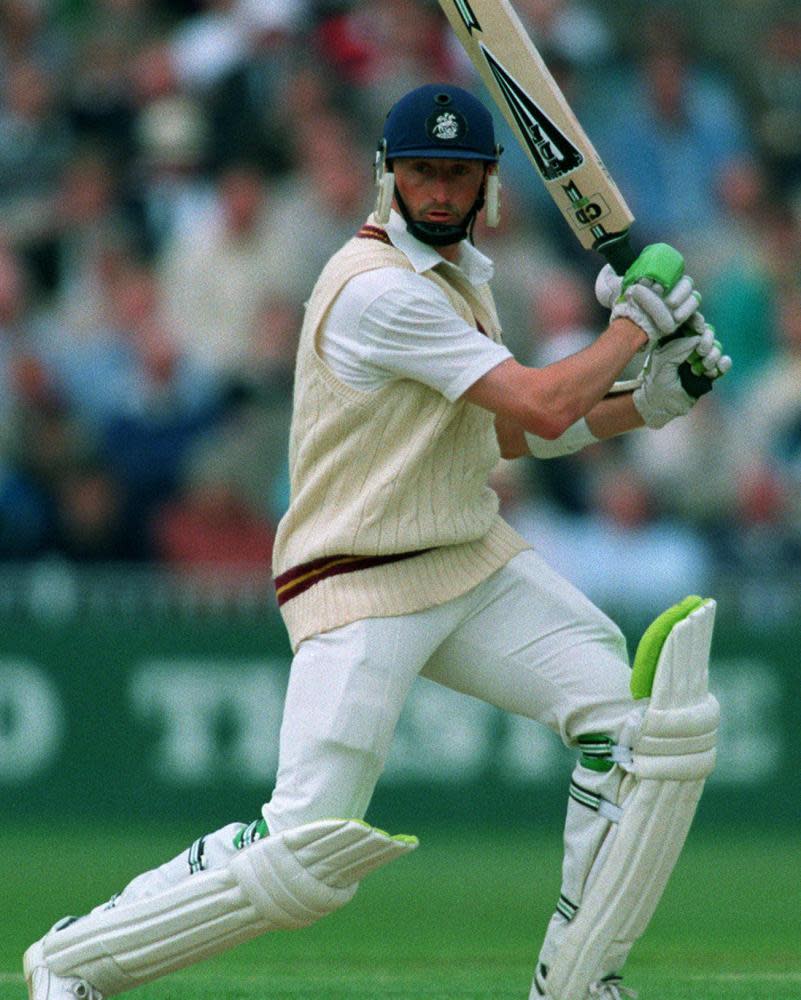David Capel obituary

It was 1989, another disastrous summer for English cricket. The Ashes had been lost, horribly. Half the England team were on the brink of joining a rebel tour to the pariah state of South Africa. Of those staying, the former star Ian Botham was in eclipse and there was an urgent search for a new world-beating all-rounder.
As a try-out, England then sent a team of young hopefuls to the Netherlands for a gentle friendly. They lost even that. Afterwards, the players tried to forget in the usual manner.
The chosen Amsterdam bar turned out to be rather louche, with whiffs of weed. But Botham’s potential successor, David Capel, was not diverted by any fripperies; he was giving a bemused local an earnest discourse on the intricacies of swing bowling. He was always intense about his cricket.

Capel, who has died aged 57 of a brain tumour, never quite established himself as the next Botham. However, he remained all his life one of the best-loved figures in English cricket. Spectators enjoyed his commitment: he could get theatrically cross in adversity. His colleagues appreciated his skills, integrity and good nature.
Above all, he was a local hero: he spent his whole career with Northamptonshire, a team that imports most of their players. But he was truly their own, and when he made his Test debut in 1987 was the first player born in the county to be capped in 77 years.
He had an unbroken association with the club from his second XI debut as a 16-year-old in 1979 until he was sacked after six years as head coach in 2012. As in football, coaches now come and go, but this was like Lear banishing Cordelia.
He joined the England team against Pakistan at Headingley in 1987 and had a spectacular first day. Down to bat at No 7, the new boy rapidly found himself at the crease with the scoreboard reading 31 for five. He held on for more than three hours to make 53, enough to spare the team humiliation though not ultimate defeat. His finest but most frustrating innings came in Karachi 18 months later when he stayed six hours, fending off the master leg-spinner Abdul Qadir, who tested him with googly after googly. He was out for 98. “It made him, in my view, a cricketer of stature,” wrote Mike Selvey.
Capel played 15 Tests, 11 abroad, where conditions rarely favoured him; in the other four England were simply outclassed. And only one of the 15 was an England victory – but it was the epic in Jamaica in 1990 that marked the beginning of the end of West Indies’ decades of dominance.
His Test record as a bowler was disappointing but he received the greatest compliment of his career in his last match, in Antigua, at the end of that series: he was warned by the umpire, Andrew Weekes, for intimidation after bowling two bouncers at the unfeasibly tall Curtly Ambrose, who would not have been intimidated if England had bowled cannonballs. No one else had been warned in a series of constant bouncers from much quicker bowlers.

Born in Northampton, David was the son of Janet (nee Mustow) and John Capel, a business administrator, who was a stalwart cricketer himself in their home village of Roade, where David went to the comprehensive school. Capel senior was once due to open the batting against United Social, who had the quickest bowler for miles around, Les McFarlane. No one would volunteer to bat with him except his 13-year-old son. Dad threw him a towel as extra below-the-belt padding, and David hung around. He and McFarlane would meet again in county cricket.
For Northamptonshire, Capel quickly established himself. He hit hard and could concentrate in a crisis; he swung the ball at a decent pace and fielded well anywhere: one of cricket’s terriers.
In all first-class cricket he averaged near 30 with bat and ball, the benchmark of all-round excellence. “Capes was good enough to be picked if he had only bowled or batted and there are not many all-rounders like that,” said his friend and Northamptonshire teammate Greg Thomas. “He was very into his cricket. He put his heart and soul into it,” recalled another, Winston Davis.
After his sacking, Capel was assistant coach to England women and then head coach to their Bangladeshi equivalents before his cancer was diagnosed in 2018. He was as dedicated a coach as he was a player, and he inspired much loyalty among his charges, even if they disagreed with his more outré theories. His genuineness generated universal affection and he never lost his schoolboy enthusiasm.
In 1985 he married Debbie Walter. She survives him, along with his daughter, Jennifer, his son, Jordan, and three grandchildren.
• David John Capel, cricketer, born 6 February 1963; died 2 September 2020

 Yahoo Sport
Yahoo Sport 





































